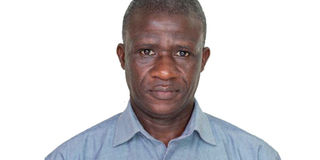Prime
EAC: We need a politburo not a secretariat

Matsiko Kahunga
What you need to know:
- If China, larger than the Australian continent, can be one country, how about East Africa? Isn’t India a continent-country? Where is our problem?
‘…he started well, but seems to be veering off, taking the wide path…we are into strange times, we can only sail through by taking the narrow path…’ Passionate about matters East African, Mzee BSN has literally established a predictable patter of behaviour whenever issues of integration cross his path. And this exactly is what happened last week.
He had just read the latest development at the East African Secretariat, namely the Tanzanian Government donating land to the Community for the construction of a new headquarters. The story, carried in the regional paper, The East African, quotes the EAC Secretary General, Dr Peter Mathuki, stating that the Secretariat is now seeking funding for the building of the new headquarters.
Visibly incensed, Mzee ‘spoiled’ our snake loop energiser exercise, during an outdoor experiential team building retreat we are currently facilitating for the board and management of a blue-chip company here. He roots for a radical shift in the direction of our regional integration.
We must start with an ideological and strategic re-orientation at the top, namely the secretariat and the legislative assembly (EALA). The secretariat should be a smaller organ, restructured and renamed a politburo, which combines ideology with technocracy. The legislative assembly should have only three legislators per partner state.
‘What we have now is actually a salariat, not a secretariat in the technical sense of the word’, Mzee argues, borrowing the ‘salariat’ term from Ugandan Sunday Monitor columnist, Philip Matogo.
The salariat factor becomes evident if one looks at the milliard organs and at the secretariat, and the squabbles that arise during the recruitment process into positions in these organs. And all dependent on foreign financing, a practice that renders our integration into collective weakness.
The organs must be reduced to the bare minimum, bare essential ones, once the secretariat becomes a politburo. The politburo’s immediate mandate should be the crafting of key ideological tenets to anchor the EAC political federation, with a supranational presidency. Partner states must agree what powers to surrender to the federal authority. The incumbency at the federal authority should be rotational every four years. This will require all partner states to have a four-year presidential term, with a harmonised electoral cycle, the way we have harmonised financial years. No duality of presidency, where an incumbent at state level is incumbent at federal level. Each presidential candidate at state level should have a running mate. Once the state president ascends to federal presidency, the running-mate takes over state presidency automatically. The federal presidency replaces the current Summit, renamed the EAC Authority. Vested with powers over foreign policy and international relations, monetary union, defence and external security, industrial development including agro-industry, the Authority becomes the final ‘locuta’ in matters EAC. And its decisions become automatically binding on all partner states. This is possible, with a politburo staffed by technocrats to guide decision-making by the Authority.
‘And on this expansion thing, we cannot afford a cosmetic ritualistic piece-meal integration process, as we see in the current exercise over Somalia. If China, larger than the Australian continent, can be one country, how about East Africa? Isn’t India a continent-country? Where is our problem? Let’s dissolve IGAD. We get Somalia, Ethiopia, Djibouti, Madagascar, the Comoros, Seychelles, to automatically join EAC at the same time. The global dynamics that led Mwalimu Nyerere into cajoling Zanzibar to join Tanganyika are even more poignant today…all eyes are on Africa…the African Question is up again…how do we escape another Berlin Conference’? We all looked on, ‘angazi’, as Mzee led us back to the day’s activities.


